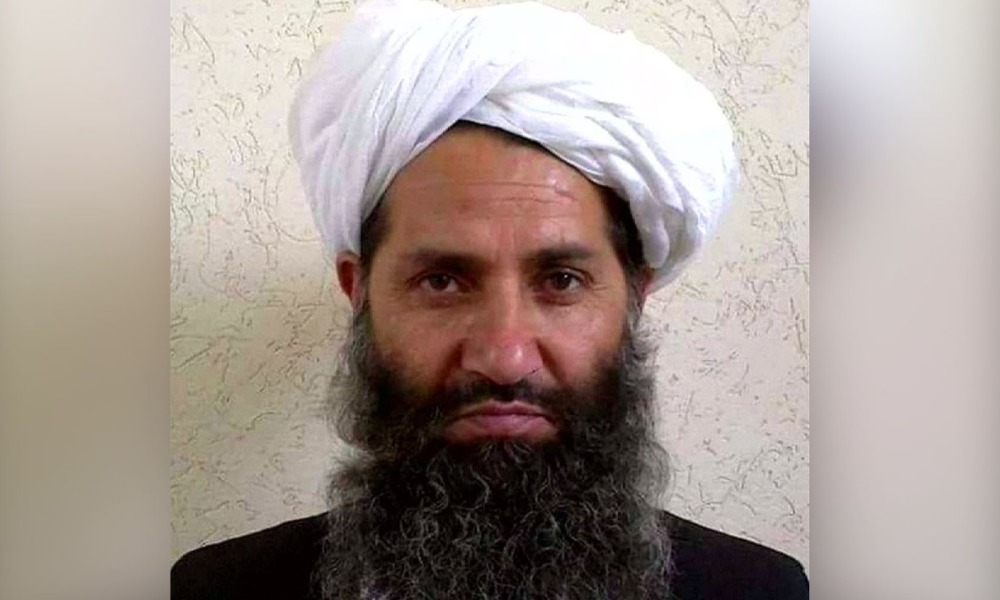NSA says there’s been no sign of Taliban leader for a year

National Security Advisor (NSA) Hamdullah Mohib said on Saturday that the Taiban’s supreme leader Mullah Hibatullah Akhundzada has not been seen in the last year – which has again raised questions about whether he is dead or alive.
Mohib said in a press conference in Kabul Saturday that intelligence findings indicate that Taliban members have not had any contact with Akhundzada in the past 12 months.
He said: “The Taliban have had no contact with Mullah Hibatullah in the last 12 months. There is no information available whether he is alive or dead. No one has heard his voice and no one has met with him [in this time]. Intelligence information proves it.”
This comes after media reports in February this year indicated that Akhundzada had been killed in an explosion in Pakistan a few months earlier.
In February, Hasht-e-Subh newspaper reported that Akhundzada, along with other Taliban leaders including Mullah Matiullah, the Taliban’s intelligence chief, and Hafiz Abdul Majeed, the group’s head of finance, were killed in an explosion at a safe house in Quetta.
But at the time, the Taliban rejected the claims and said Akhundzada was still alive.
These reports came after Foreign Policy reported in May last year that Akhundzada could possibly be dead after having contracted COVID-19.
Pajhwok Afghan News meanwhile reported that senior government officials said this week that most of the decisions around peace and security are being made by the Taliban’s deputy leader Sarajuddin Haqqani.
However, Taliban spokesman Zabihullah Mujahid denied the reports that he was dead and told Pajhwok that Akhundzada was very much alive.
Mujahid said Akhundzada was merely in a safe place for his security and that he does not make public appearances.
Akhundzada is the Taliban’s third supreme leader. Founded in 1994, the group’s first leader Mullah Mohammad Omar died in a hospital in Pakistan in 2013. However, his death was only announced two years later.
Omar was succeeded by Mullah Mohammad Mansoor, who was killed in a drone strike in 2016.
